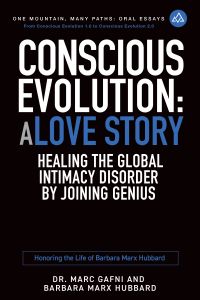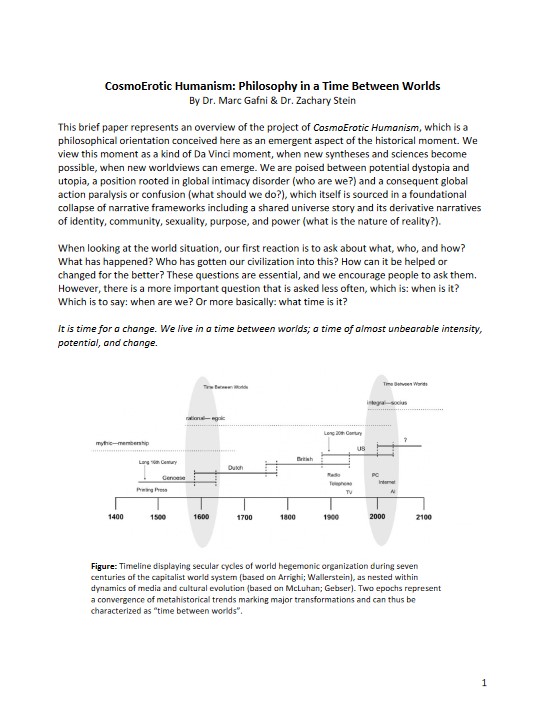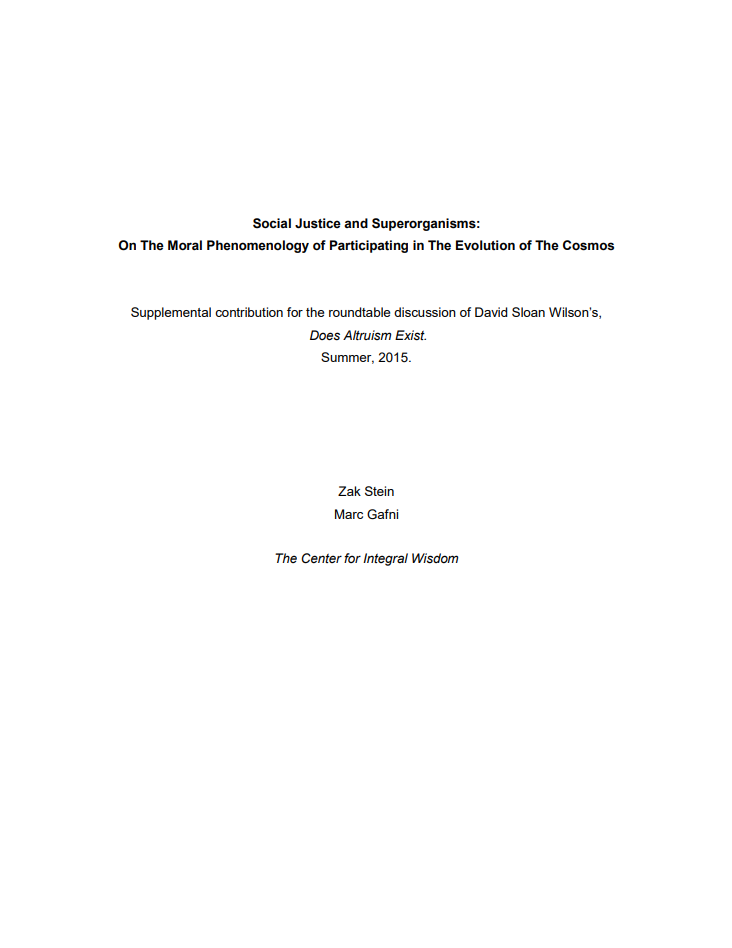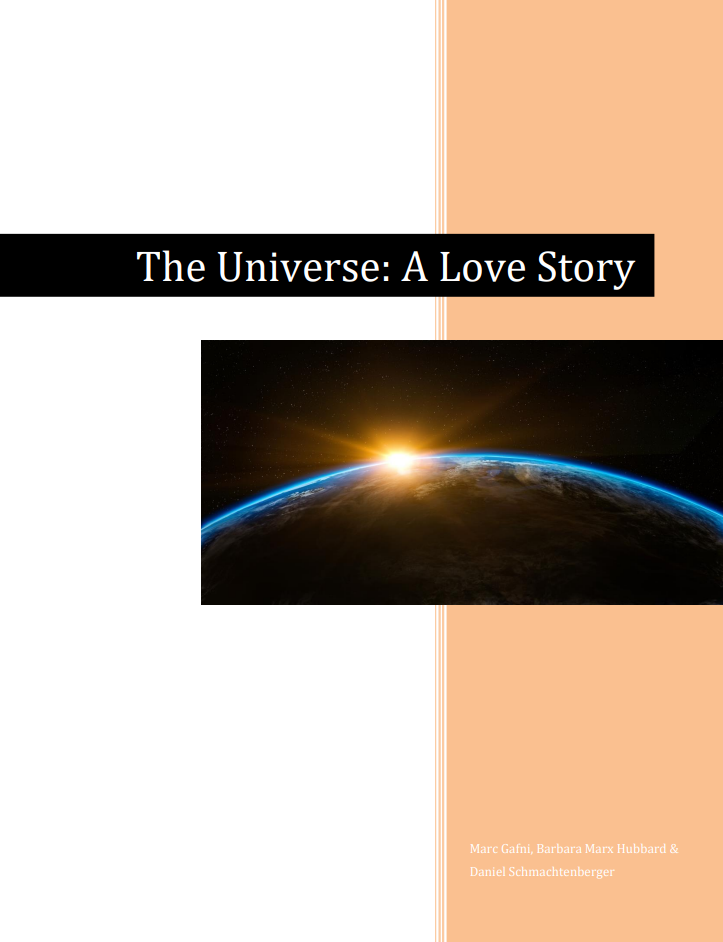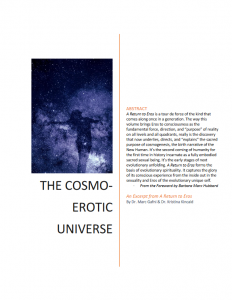There Are a Welcome (Home) Signs in Reality | One Mountain Oral Essays | Dr. Marc Gafni & Dr. Zak Stein
There Are a Welcome (Home) Signs in Reality: There Are No Strangers: The Structure of the Intimate Universe
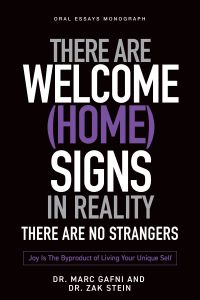
This short volume poses a fundamental question: Are we truly welcome in the Universe? The answer, resoundingly, is yes—we are always and already welcome. This realization—the sense that we are deeply needed and loved by Reality itself—forms the foundation for a new Story of Value and a new way of understanding the world. Dr. Marc Gafni (along with Dr. Zak Stein) invites readers to embrace the notion of “Outrageous Love” as a response to suffering. It argues that our shared existence is not a matter of mere survival, but of radical intimacy with the Cosmos—and each other.
Through poetic perception and spiritual insight, this series of “oral essays” weaves together the wisdom of both modern exterior science and ancient interior sciences, declaring that Value, Beauty, Truth, and Goodness are all universal “welcome home” signs, ever-present but often forgotten. In these pages our hearts and minds are aroused to our irreducibly unique voice in Cosmos, ecstatically and soberly called to live as Homo amor—the new human and new humanity animated by Evolutionary Love.
Gafni and Stein articulate a vision of global coherence, rooted in First Principles and First Values embedded in a true Story of Value.
It is only when we have a direct realization that value is real—and that we incarnate unique value needed by All-That-Is—that we begin to feel truly welcome in the Universe.
Moreover, it is only the inherent intimacy and interconnectivity with all things within a shared Field of Value that is the ground from which we are able to creatively engage and heal the root causes of our global meta-crisis.Published by World Philosophy and Religion Press in conjunction with Integral Wisdom Publishers.
Book details:
Title: Author: Dr. Marc Gafni & Dr. Zak Stein
Series: Oral Essay Series – Volume 37
Publisher: World Philosophy and Religion Press in conjunction with Integral Wisdom Publishers.
ISBN-13: 979-8888340189
Formats: Paperback, e-book, audiobook.
Table of Contents
CHAPTER 1 WELCOME HOME SIGNS IN THE COSMOS: INTIMACY IN THE EXTERIOR AND INTERIOR SCIENCES
- The Most Important Question in a Perilous Time
- Are We Actually Welcome?
- The Direct Experience of Being Welcome
- The Original Welcome Signs: Beauty, Truth, and Goodness
- Follow the Signs Home to Feel Welcome
- Anthro-Ontology: The Mysteries Are Within Us
- Telling a New Story: From Rivalrous Conflict to Mutual Interdependence
- Chaos Theory: The Mathematics of Intimacy
- Thank You—You’re Welcome
- There Are No Strangers in the Universe
- The Intimacy Equation
CHAPTER 2 MOTHER: ANOTHER WORD FOR WELCOME
- Outrageous (Maternal) Love
- Mother Is the Infinite Intimate
- The Only Response to Outrageous Pain Is Outrageous Love
- Outrageous Love as Evolutionary Love
- Introduction to Genesis 29: The Birth of Homo amor
- We All Participate in the Messiah
- Judah Becomes Leah’s “Welcome Home” Sign in Cosmos
- The Mother Welcomes and Is Welcomed
- The New Love Story
CHAPTER 3 ALWAYS ALREADY HOME, ALWAYS SEARCHING FOR HOME
- Beyond Religious Delusion and Statistical Implausibility the Earth Makes Sense
- False Story of Nature
- Let’s Welcome Each Other
- All Problems—and All Solutions—Are Interconnected
CHAPTER 4 EVOLUTION IS THE EVOLUTION OF LOVE
- How to Dance Beyond Polarization: A New Relation to Certainty
- The Loss of Eros, and the Pseudo-eros of Polarized Identity
- The Pseudo-eros of False Certainties
- Welcome: The Field of Eros Is the Field of Value
- Enlightenment: Intimacy with All Things
- Being Welcome Is Being Needed, Uniquely
- Welcome Home, Again
- Re-Parenting Ourselves
- Faces of the Self
- You Are Welcome
About the Authors:
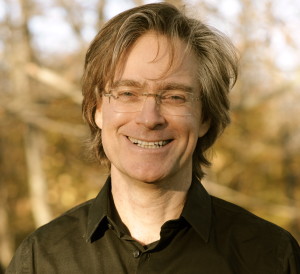 Dr. Marc Gafni is a leading public intellectual and teacher impacting the source code of global culture.
Dr. Marc Gafni is a leading public intellectual and teacher impacting the source code of global culture.
Gafni is a visionary thinker, social activist and passionate philosopher. He is known for his “source code teachings”, including Unique Self theory and the Five Selves, the Amorous Cosmos, A Politics of Evolutionary Love, A Return to Eros and Digital Intimacy.
He is author of twenty five books, of which the first ten have been published, including the award-winning Your Unique Self: The Radical Path to Personal Enlightenment.
He holds his doctorate in philosophy from Oxford University, as well as Orthodox rabbinic ordination.
He teaches on the cutting edge of philosophy in the West, helping to evolve a new ‘dharma’ or meta-theory of Integral meaning that is helping to re-shape key pivoting points in global consciousness and culture, with the aim of participating in the articulation of what Dr. Gafni together with Dr. Zak Stein and colleagues are calling CosmoErotic Humanism.
At the core of CosmoErotic Humanism is what Dr. Gafni and Dr. Stein are calling ‘First Principles and First Values’, Anthro-Ontology and a “Universal Grammar of Value”.
This is the ground of a new shared universe story and a new narrative of identity for the new human and the new humanity. This is what they are calling the emergence from Homo sapiens to Homo Amor.
This shared story rooted in First Principles and First Values can then serve as the matrix for a global ethos for a global civilization.
Gafni is considered by many to be a kind of Einstein of Philosophy who is leading a team of thinkers articulating a new vision of meaning for the world.
Dr. Gafni is the Co-Founder together with Ken Wilber and Sally Kempton of the Center for World Philosophy and Religion where he serves as its co-president. Together with Dr. Zak Stein, they are co-leading a team of thinkers, articulating a new vision of meaning for the world.
In 2014 Dr. Gafni co-initiated the Success 3.0 Summit and Rise Up movie, whose method and movement is to bring together key thought leaders and change-agents to collaboratively evolve a bold new Integral vision of Success, rooted in the entrepreneurial values of Wake Up, Grow Up, Show Up, and Outrageous Love.
Over the past 30 years, Dr. Gafni has developed evolutionary and activist programs rooted in his commitment to what he has termed “participating in the evolution of love.” Together with author and social innovator Barbara Marx Hubbard, he is working on a series of new works revolving around Evolutionary Spirituality.
Dr. Zak Stein is a philosopher of education working at the interface of psychology, metaphysics, and politics. He has published two books, including Education in Time Between Worlds, along with dozens of articles. This writing was done as he worked co-founding a non-profit and the Center for World Philosophy & Religion, as well as teaching graduate students at Harvard, and consulting with technology start-ups. Zak Stein is a long time meditator, musician and caregiver, which has shaped him more than any professional engagements.
Explore more:
Explore the Great Library:
Center for World Philosophy & Religion – Oral Essay Series → https://worldphilosophyandreligion.org/books/
Learn about the full Oral Essays series:
Complete Oral Essay Series → https://worldphilosophyandreligion.org/oral-essays-series-one-mountain-marc-gafni/
Dr. Marc Gafni Official Website:
https://marcgafni.com/
Center for World Philosophy and Religion:
https://worldphilosophyandreligion.org/
Free Weekly Broadcast with Dr. Marc Gafni:
https://www.onemountainmanypaths.org/
Join the community Who We Must Become:
https://who-we-must-become-3166d4.circle.so/
Free Unique Self Mini Course:
https://www.uniqueselfinstitute.com/the-unique-self-mini-course/
Formal refutations on controversy:
WhoIsMarcGafni.com
Social Media Dr. Marc Gafni:
Substack: https://substack.com/@marcgafni
Instagram: https://www.instagram.com/marcgafni/
YouTube: https://www.youtube.com/c/MarcGafni
Facebook: https://www.facebook.com/DrMarcGafni
Twitter:https://twitter.com/MarcGafni
LinkedIn: https://www.linkedin.com/in/drmarcgafni/
TikTok: https://www.tiktok.com/@drmarcgafni


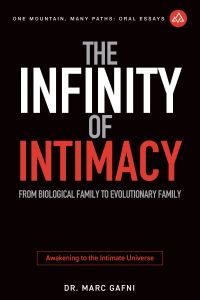
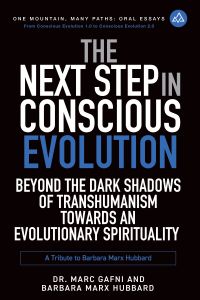
 Barbara Marx Hubbard (born Barbara Marx; December 22, 1929–April 10, 2019) was an American futurist, author, and public speaker. She is credited with the Wheel of Co-Creation and together with Dr. Gafni, the Wheel of Co-Creation 2.0, as well as the concepts of the Synergy Engine and the “birthing” of humanity.
Barbara Marx Hubbard (born Barbara Marx; December 22, 1929–April 10, 2019) was an American futurist, author, and public speaker. She is credited with the Wheel of Co-Creation and together with Dr. Gafni, the Wheel of Co-Creation 2.0, as well as the concepts of the Synergy Engine and the “birthing” of humanity.